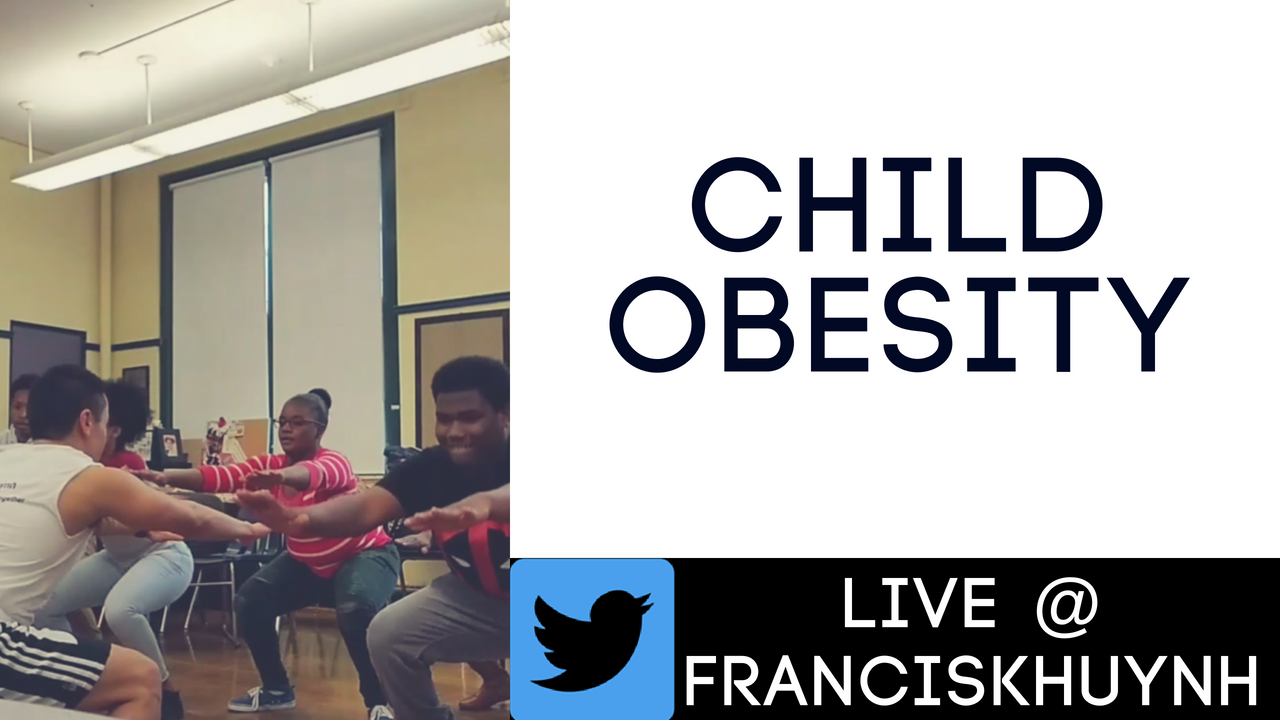Child ObesityChildren Age 2 to Teenagers Age 19 can determine if they are overweight or obese using the Center of Disease Control and Prevention (CDC’s) BMI calculator.
Per the Organization of Economic Cooperation and Development (OECD), 1 in 6 children are overweight. Obese children are more likely to develop a variety of health problems as adults including cardiovascular disease, insulin resistance (a sign of pre-diabetes), musculoskeletal disorders (especially osteoarthritis), some cancers (endometrial, breast and colon), and disability. Social influences at home and school are leading forces of child obesity. At home, children who are raised by obese parents have an 80% chance of being obese when they become adults. That is a staggering statistic. Parents must lead by example by serving nutritious meals and storing healthy foods at home. A house full of junk food and daily orders of fast food is a fast track to obesity. Children grow up idolizing athletes and hollywood stars seen on television. Parents must do their best to curb television viewership as food and beverage companies spend billions of marketing dollars targeting kids to influence their food choices. New York University conducted research on sports sponsorships discovering that major sports leagues like the NFL and NBA have millions of young viewers (about 412 million under the age of 17 per year). Unfortunately, the vast majority of the snacks and drinks featured through these sponsorships are unhealthy. Kids see these pro athletes at the pinnacle of physical fitness — then the television cuts to a commercial for chips and sugary drinks which could horribly lead kids to think these products are healthier than they are when 76% of food and beverage ads shown are unhealthy such as Snickers bars, Doritos chips, and Frosted Flake cereals. When kids see a given food branded with a superhero or a sports hero, they eat more of it. As parents, you can take charge in your community similar to the World Health Organization who suggest strict regulations on food ads targeted at kids. Bans on advertising of foods and beverages on TV and radio during hours when children are the main audience have been put in place in Chile, Iceland, Ireland, and Mexico. Other bans apply in schools (e.g. Chile, Poland, Spain and Turkey), in public transport (e.g. Australia) and other public places (e.g. Norway). In America, cities such as Phoenix applied to earn grants nationally to fight obesity in their communities. A move other cities should follow. Being obese as children in school is tough as children face low odds of enjoying benefits of normal weight, experience social discrimination for being overweight by their classmates, and likely to obtain medical problems. On a nutrition front, food education should be a part of the curriculum where students can visit local farms, learn about healthy eating and cooking. For exercise, John Ratey’s Spark book, covered a wonderful success story from Naperville, IL in 1999 where all middle schools implemented a gym class for 19,000 students transforming them into the fittest middle-schoolers in the nation as only 3% of Naperville was overweight vs the 30% national average. Best of all was the benefits of the benefits to the mind with improved intelligence where Naperville's 8th graders took the TIMSS (Trends in International Mathematics and Science Study) test against powerhouses of China, Japan, and Singapore - beating them out for 1st in Science and 6th in Math worldwide. Childhood obesity is personal as I was obese at Age 10 with little exercise, poor academics, and bad nutrition. Seeing that, my father enrolled me in karate for 3 years and encouraged signing up with the track team as it’s the only sport that doesn’t make cuts - everyone plays! I’m forever grateful for my father’s encouragement to exercise as I became healthier and improved academically finishing top 10 in high school, attended an elite liberal arts college in Maine, and graduated with honors from MBA business school. Without exercise, I would not be where I am today to pay it forward with a personal mission to help 2 billion overweight people become healthier. For students, the call to action is to exercise for 60 minutes 3 times a week, eat healthily, and be careful of the unhealthy advertisements seen on television by superheros and athletes you love. Fitness can be a family sport or community driven thru your school or sports team. If your family is ready to rid yourself of obesity, reach out to our team for in-home personal training or onsite group fitness at your school. Make sure you subscribe to and share with friends our weekly newsletter and youtube channel for the latest fitness content. Everyone can just win by training. Are you ready. Never train alone again. JustHuynh! ------ JustHuynh Mission: Kill Global Obesity thru Social Fitness Follow&Subscribe Francis Huynh! //
1 Comment
|
Details
AuthorFrancis Huynh is Founder & CEO of JustHuynh - the social fitness company who's mission is to kill global obesity thru personal training and group fitness for the needed social accountability and motivation in being healthy. Personally experiencing obesity during childhood, college, and work -training with partners helped Francis become healthier and happier. With time as most valuable resource, Francis turned down corporate career opportunities post-MBA to dedicate his life to help 400 million+ people affected with diabetes worldwide reach their health goals. Francis completed his undergrad at Bowdoin and MBA at Vanderbilt. He is living with wife in Boston. The mini-Franchises are currently on-hold until JustHuynh is helping the world. Archives
October 2018
Categories |





 RSS Feed
RSS Feed